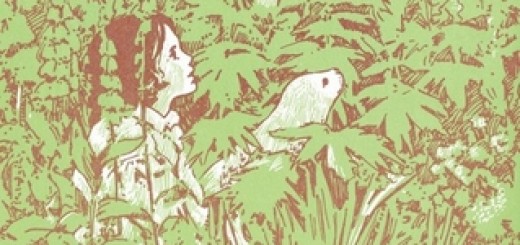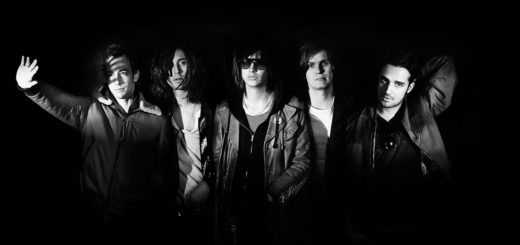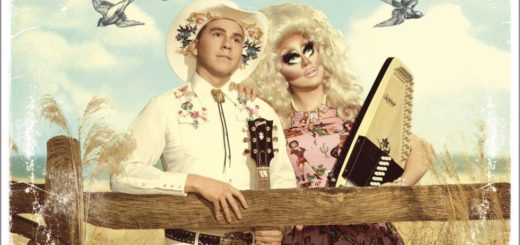Interview: Risa Rubin
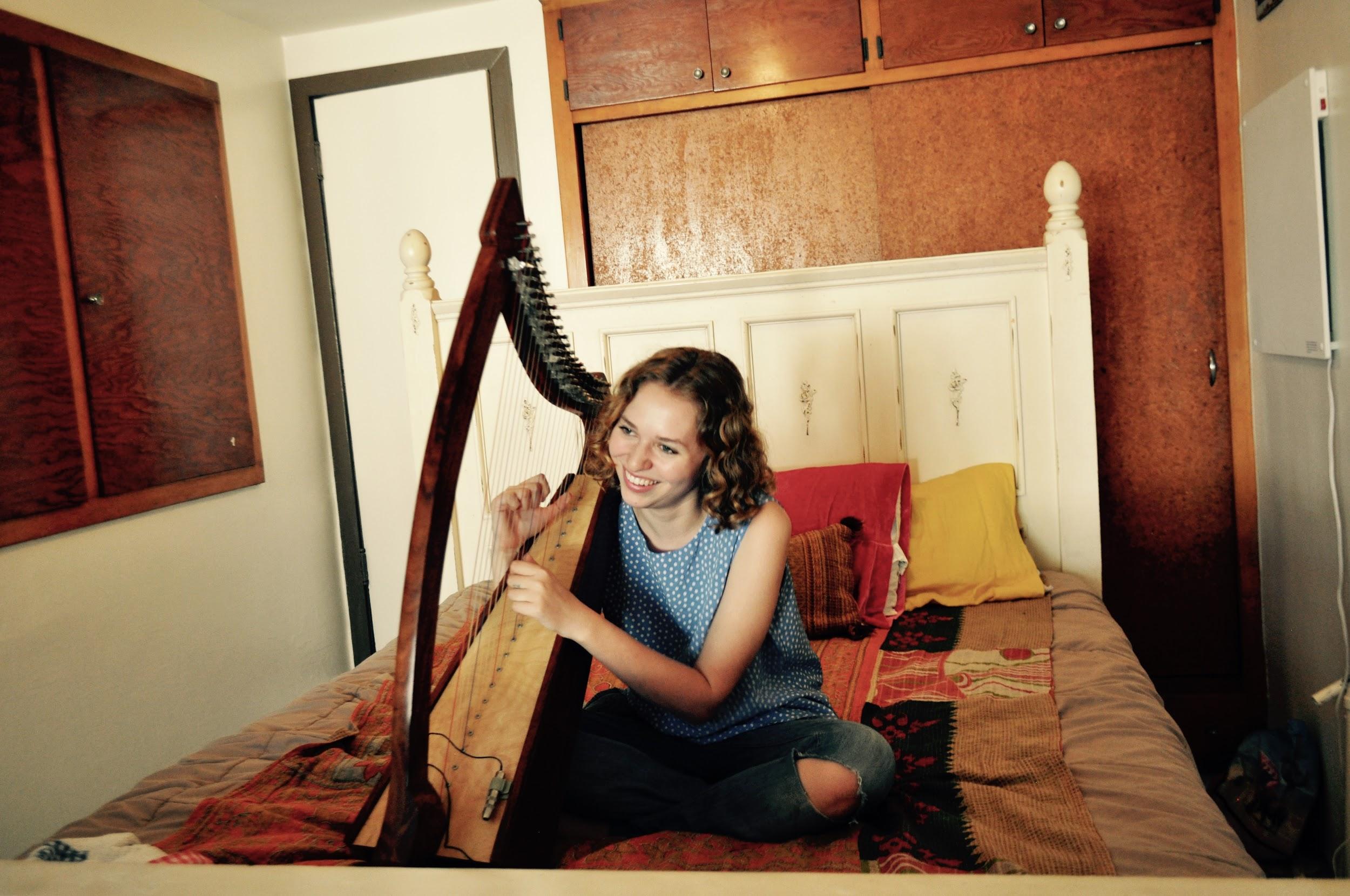
Risa playing her harp in her bedroom/studio
Photo Credit: Gabriella Fooks
Risa really wants you to buy her album. With a cover that (quite amazingly) self-praises — not to mention gloats at those who never believed in her — there’s something oddly enchanting about her tactics. It’s a cover that immediately screams unbolted introspection; Risa’s not afraid to write music for herself, tracks that begin to pluck at her own vulnerability while challenging others with its freak-folk instrumentation and off-kilter rhythmic arrangements. Trained as a jazz singer, Rubin’s knack for texturized and timbred vocalization liberates her from the composed bounds of traditional harp playing, and allows an excellent outlet for self-expression and emotional catharsis. I had the pleasure of visiting Risa at her studio abode in Los Feliz to chat about her buzzing LP JEWISH UNICORN and sift through some of her art and photography. You can bid for one of her works here if anything catches your eye!
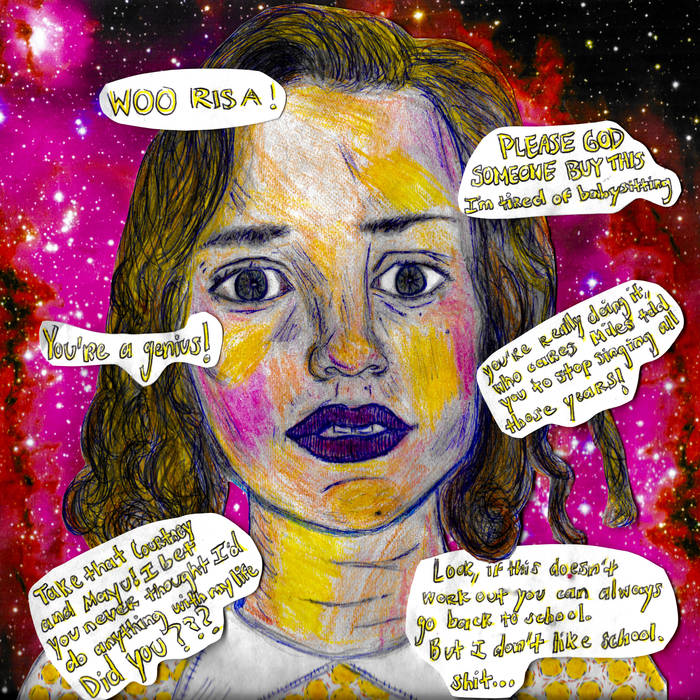
JEWISH UNICORN album cover
Hey there, Risa! So why should we buy your album? You’ve got a couple of anecdotes on the cover (pictured above), but I’d like to hear the pitch!
I mean the pitch is I guess that I think it’s unique; that’s the first thing I would say about it. It’s not for everyone, but there aren’t enough albums that sound like it really. It [the cover] was a tactic! I think the tactic with all of it is to try to be more honest. I don’t want to say self-depreciating because that’s not necessarily a good thing. But it’s more self aware and honest about what I’m doing and how difficult it is to self-produce and release my music. It is really hard. I made videos for each song that are more like arty videos. The goal of all of it is to not pretend that I’m super glamorous and sexy… all the things that musicians do, you know? Even though making music is kind of not that fun? It can be sad, and it can be depressing at times, trying not to pretend like it’s something that it isn’t. There’s so much music that I want to come up with ways to truly distinguish myself.
What, to you, makes a person a JEWISH UNICORN?
Hmm. I guess in theory they’re Jewish. I mean, I don’t want to say that they have to be Jewish. I picked that because my sister for some reason used that phrase once and I thought it sounded cool. She called me that once. I guess I sometimes have negative [sentiments] about being Jewish. I think maybe being a Jewish girl is not considered the most sexy or attractive thing; you are thought of as being more neurotic and nebbish (kind of like my whole family is). The unicorn tries to put a graceful spin on my identity, and paired with my harp playing I feel like the term helps me feel more graceful and pretty while playing and sharing my music.
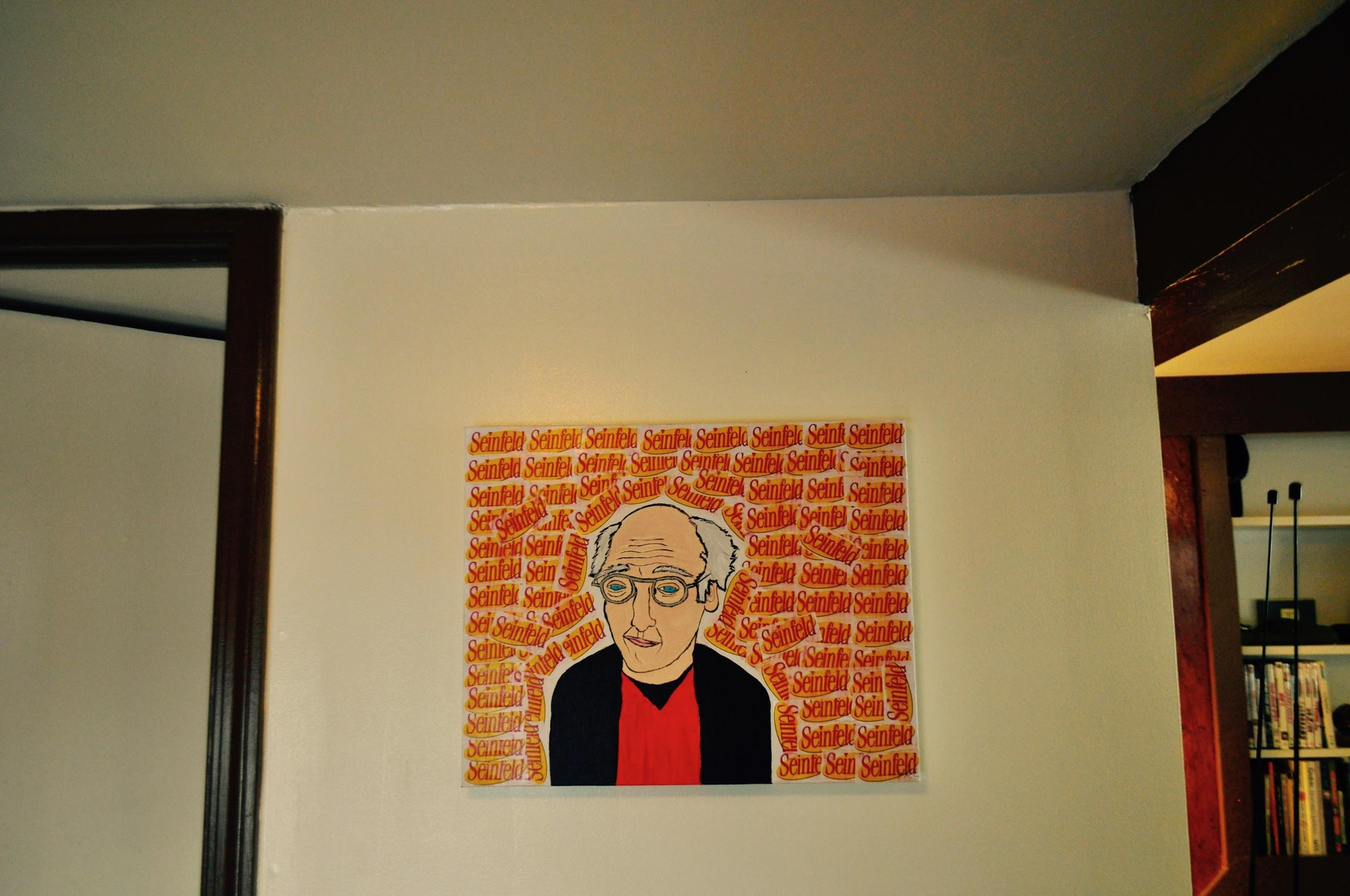
Larry David: Fellow Jewish Unicorn
Painting by Zane Rubin
You are a harpist, which is one hell of a craft to master. What about the instrument draws you to incorporating it into your music?
I heard it and I just thought it was the coolest thing ever. I initially thought I was going to play the big harp but realized it was (on average) $20,000. The one I have now is literally the worst one you can have. There’s a crazy weird hierarchy in the harp community that I discovered when I began to invest in it.
I listened to a lot of Joanna Newsom, and I used to always sit and listen to a woman playing the harp at the BART station in Berkeley, so that inspired me to begin taking lessons. Initially, I just bought it to accent my music that I wrote with my keyboard, but it just ended up taking over.
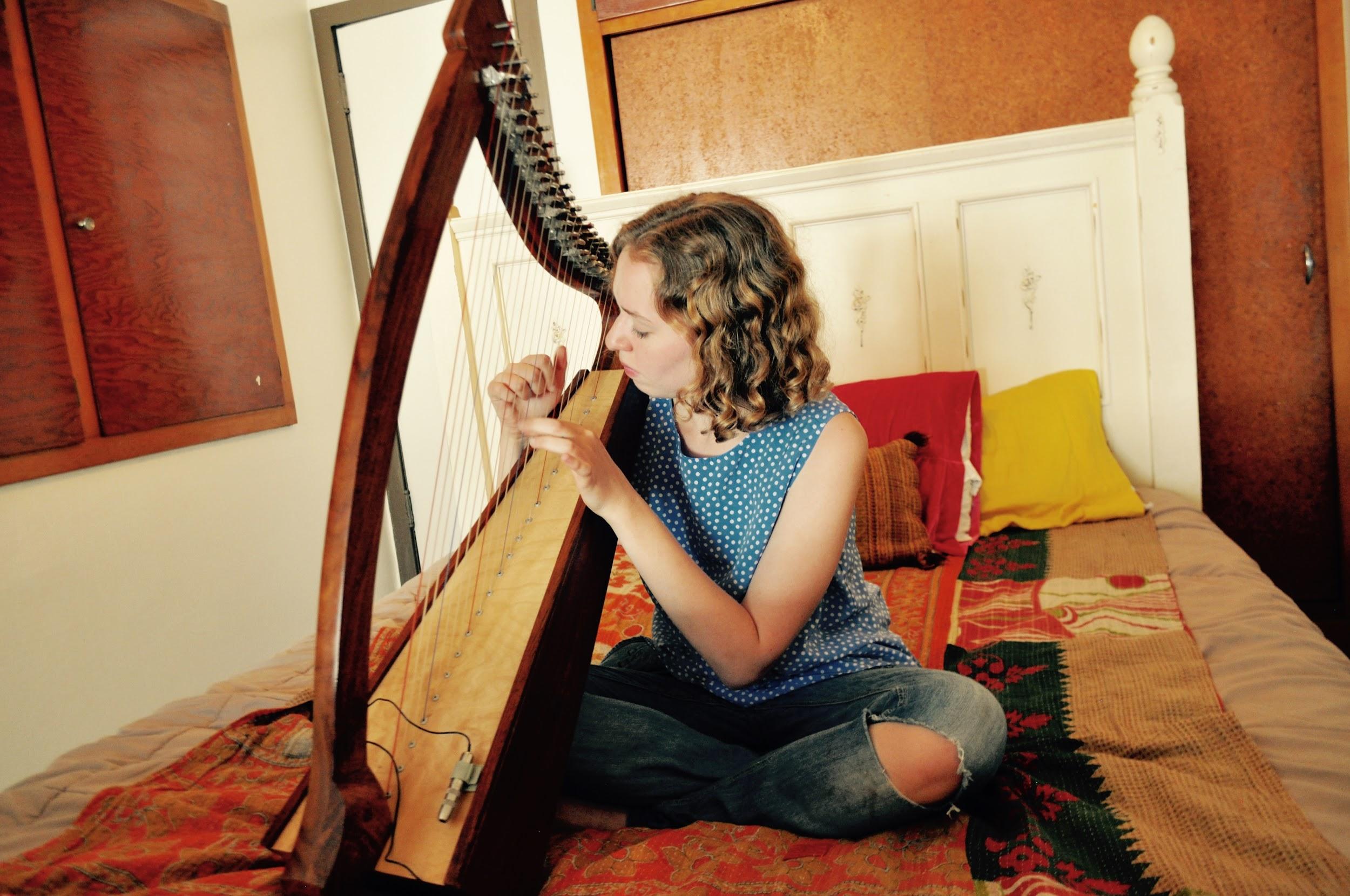
Photo Credit: Gabriella Fooks
When you are in the process of writing a song that’s confessional, like a lot of your music is, who do you usually show it to first? Is there anyone you actively don’t show your work to while it’s still in progress?
I don’t show my music to my brother. He’s the person who I avoid showing any of my music to. I have a twin brother who’s in the Israeli army, he’s very different from the rest of the family. He was always very against me singing. We just don’t talk about [that] with each other, which is probably not healthy. I don’t think he likes it very much; I think the reason why I didn’t begin playing music during my early childhood was because he was so anti-music/anti-singing, but everyone else in my family is supportive. I do usually show my music to my sister first since she lives with me. Probably until I record it, I won’t show it to anyone else.
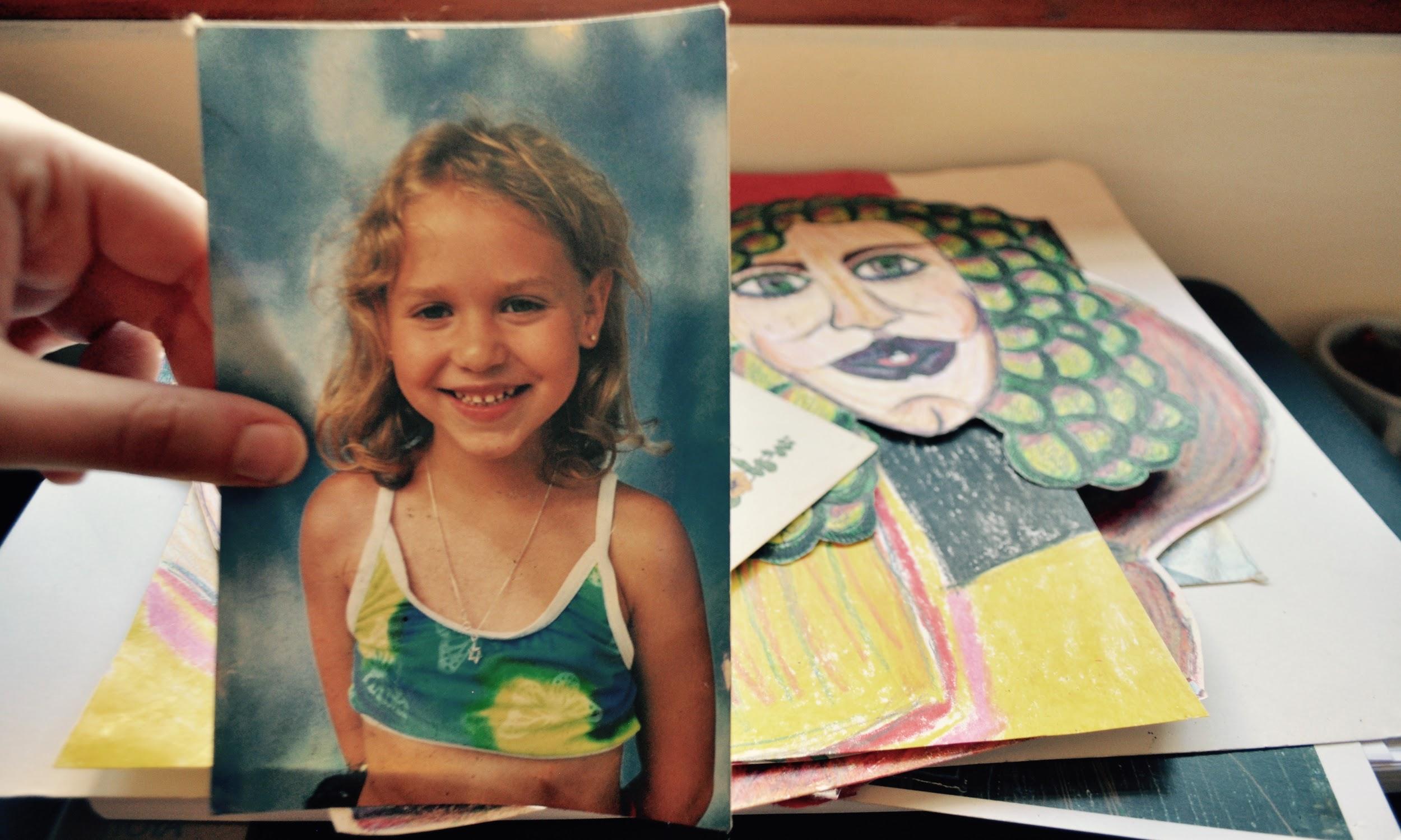
Young Risa next to Risa’s artwork
Photo Credit: Gabriella Fooks
You’ve got a very specific singing style, have you always sung this way or is it a voice that’s developed over time?
Yes and no. I wanted to be a jazz singer for a long time when I was younger. What changed it (my voice) was when I began playing the harp. When I play the harp, I don’t know why, but my voice sounds not as pleasant as it sounds normally. Because I’ve noticed when someone hands me jazz standards during my lessons, my voice sounded different from when I would pick up the harp and write my own music. It doesn’t sound as objectively pleasant. My voice changes I guess.
You seem to use very minimal percussion, and it makes the drums really stand out sharply when you do use them. Is this an intentional choice or just something that feels right?
I wanted to use some percussion when I realized after recording my last two albums that something was missing. I don’t think it occurred to me at the time that I could add them for whatever reason, because I didn’t know much about recording music. So, this time, I finally understood that you needed a certain amount of tracks to create a full-bodied sound. So a lot of the percussion is intentional and emphasized for certain songs. Most of the time it is to add some depth to some of the tracks. It is something that I do want to experiment with more.
Have you ever heard of klezmer? It’s a freaky but interesting genre of music that fuses 30s American Jazz with traditional Yiddish folk music. Was wondering if you ever listened to early gypsy jazz and swing cause your style of singing and your arrangements definitely draw from the genre.
I don’t really actually, but I do know what it is and it’s a really cool sound!
A lot of your songs seem to be about finding strength in vulnerability and confidence in exposing your supposed flaws. Is that fair to say? If so, is it conscious on your part or is it just what feels right as you create?
Yeah, I think that’s right. Is it conscious? Yeah, I think it’s both, actually. It feels natural to sing about those things. If a certain thing happens to me and if I’m feeling a certain way, it’s natural to write a song about that. That’s what I’m most drawn to when it comes to music. I feel like a person that needs to talk about those things more than other people, you know? I don’t think I would be able to sing songs that are just fun and happy even though that would be nice and I know a lot of people like that [chuckles]. Part of the whole reason I’m drawn to music at all is because I need an outlet to talk about those things.
Do you enjoy crying or have you just become more comfortable with the fact that you cry frequently?
[Chuckles] I don’t enjoy it. No, I don’t. If it feels like something I haven’t done in a long time (but the crying is usually happening a lot), I enjoy the release. I feel like it’s something I do more than some people do. Sometimes it feels like in the way that all people cry, but also I feel like I have this natural anxiety, and feeling overwhelmed usually translates to crying. I don’t like it and probably should get medicated for it.Over the past couple years, there’s been an influx of incredibly experimental and drop-dead breathtaking female singer-songwriters such as Chelsea Wolfe, Angel Olsen, and Sharon Van Etten. Have their innovative blends of the folk genre been an inspiration to you?
Yeah! Yeah, Definitely. I listen to a lot of Angel Olsen, been wanting to get into Chelsea Wolfe. I listen to a lot of Kate Bush. They definitely inspire me to keep on going.
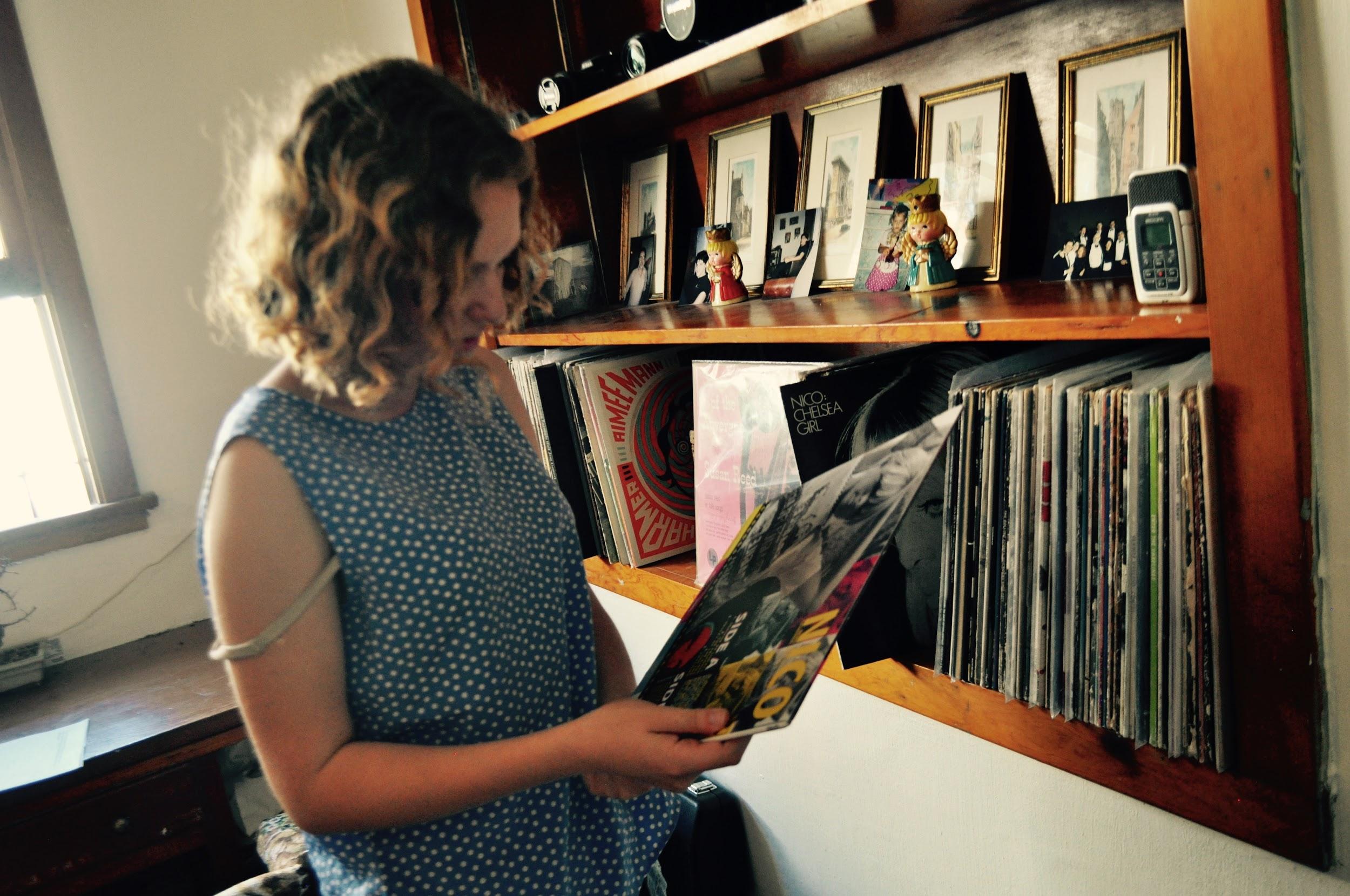
Risa sifting through her record shelf
Photo Credit: Gabriella Fooks
Do you think your style of folk-based pop is less accessible than contemporaries like Nora Jones and Joanna Newsom? What was the reason behind deviating from like-minded female vocalists/musicians?
It might just be that I’m doing everything myself, and that when you do things without any money, things sound handmade. I’ve grown to like that sound a lot. You know how when you make something, your intention and your vision of what it is is always quite grander than what it turns out to be? In the future, I would like to have more control over the sound and would like to have a bigger sound, but I do still like the uneasiness that translates after every listen.

